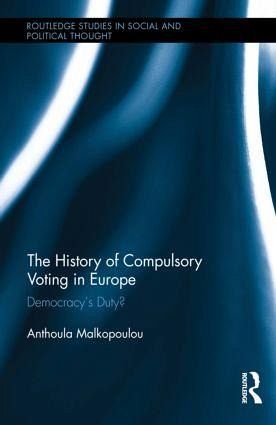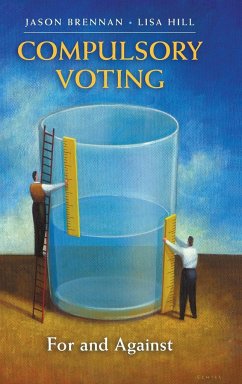
The History of Compulsory Voting in Europe
Democracy's Duty?
Versandkostenfrei!
Versandfertig in 1-2 Wochen
185,99 €
inkl. MwSt.

PAYBACK Punkte
93 °P sammeln!
This book addresses the question whether there is a duty to vote and if this is enforceable in the form of compulsory voting. Anthoula Malkopoulou presents the importance of compulsory voting today, situating the debate within the contemporary discussion on elections, representation and democracy, and questioning the historical origins of the idea in Europe. Malkopoulou also criticizes the misuse of compulsory voting and argues for its abolition after the Second World War, exposing the contingency of relevant normative claims today and the conditionality of compulsory voting.












